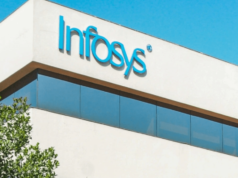Jensen Huang of Nvidia revealed plans to construct Taiwan’s first AI supercomputer, expanding the island’s position in the global AI arena. In the face of escalating geopolitical tensions, the program seeks to build a local AI ecosystem and state-of-the-art infrastructure by working with companies such as Foxconn and TSMC.
An important turning point in Taiwan’s contribution to the development of artificial intelligence worldwide has been reached with the announcement by Nvidia CEO Jensen Huang of an ambitious plan to construct the island’s first AI supercomputer. Huang made the news while giving the keynote address at Computex, the leading technology trade event in Asia that is presently taking place in Taipei.
As part of the project, Nvidia will work with the government and top Taiwanese companies Foxconn and TSMC to build state-of-the-art AI infrastructure on the island. Huang remarked, “Taiwan does more than just build supercomputers for the world.” “We are developing AI for Taiwan as well.”
The executive, who was born in Taiwan, emphasized the strategic significance of creating a local AI ecosystem, characterizing the island as the “centre” of the semiconductor and AI industries. “It’s crucial that Taiwan has a top-notch AI infrastructure,” he continued.
Huang also unveiled the most recent developments in Nvidia’s AI hardware, like as an enhanced Blackwell processing platform, during his speech. He demonstrated a new version of the company’s NVLink technology, which enables customers to create semi-custom AI infrastructure, as well as new robotics tools and “AI agents” intended to oversee business processes.
In his signature black leather jacket, Huang stated, “In ten years, we’ll look back and realize that AI has become part of everything.” “In actuality, AI is required everywhere.”
The yearly Computex show, which highlights Taiwan’s pivotal role in the development of cutting-edge semiconductors—essential parts for servers, smartphones, and AI applications like ChatGPT—has attracted tech leaders from all over the world.
Additionally present are executives from multinational chipmakers MediaTek, Foxconn, and Qualcomm. Cristiano Amon, the CEO of Qualcomm, made vague references to the company’s plans to expand into data centers. The drive to directly incorporate AI capabilities into consumer electronics like laptops, robotics, and automobiles has garnered a lot of attention this year.
Witology Markettrend Research Institute analyst Paul Yu emphasized how crucial the timing was. According to Yu, “AI hardware is at a critical juncture.” Rapid innovation has resulted from significant investment over the past two and a half years. Converting AI model training into commercial applications will require the years 2025–2026.
But the industry has difficulties, especially in light of changing trade regulations and escalating geopolitical tensions. A lot of people at Computex are still hesitant to speak out explicitly about the possible effects of US tariffs, which are still being changed under President Donald Trump’s administration.
Washington opened a national security probe into semiconductor imports in April, which may lead to the imposition of severe new taxes, particularly on foreign manufacturing facilities.
In an effort to manage this uncertainty, Taiwan, whose economy is largely dependent on tech exports, has committed to increasing investment in US-based businesses. Building on its prior US$65 billion promise, TSMC has announced an additional US$100 billion investment in the US. In the meantime, GlobalWafers has committed an additional US$4 billion to strengthen its US footprint and opened a new wafer facility in Texas.
Despite these difficulties, Huang maintained a positive attitude. In response to inquiries concerning the effects of the present trade climate, he stated, “I fully expect Taiwan to continue to thrive—before, after, and throughout.”







